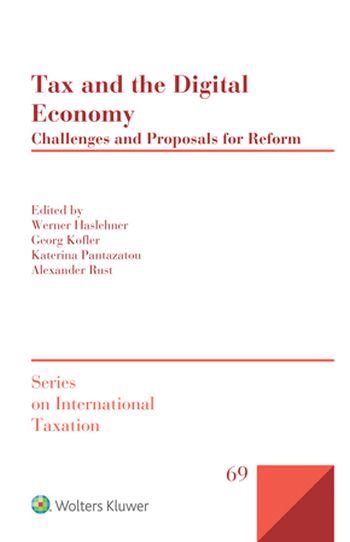
Tax and the Digital Economyi> provides a detailed analysis of the impact of the digitalization process on tax policy, tax administration and taxpayers. The increasingly digitalized global economy is undermining the usefulness of many traditional tax concepts. In addition to the issues of double taxation and double non-taxation, important questions arise concerning the allocation of taxing rights in respect of income from cross-border digital transactions. This is the first book to analyse what changes are possible, necessary and feasible in order to forestall the unravelling of the existing international tax framework and to provide guidance on ways to adapt national tax systems to a digitalized world.
What’s in this book:
Focusing in turn on the legal framework, specific proposals for adapting tax concepts for the digital economy, types of transactions and administrative issues such as those around data protection and digital currencies, the expert contributors discuss such challenges to taxation as the following:
How this will help you:
It is generally acknowledged that there is a need to monitor how the digital transformation may be impacting value creation. This book is a key milestone towards developing a durable, long-term solution to the tax challenges posed by the digitalization of the economy. With its thorough scrutiny of proposals for a digital services tax and virtual permanent establishments, and its astute analysis of modern digital services taxation, it will quickly prove indispensable for tax practitioners and the international tax community more generally in understanding the challenges arising for tax policy from digitalization.